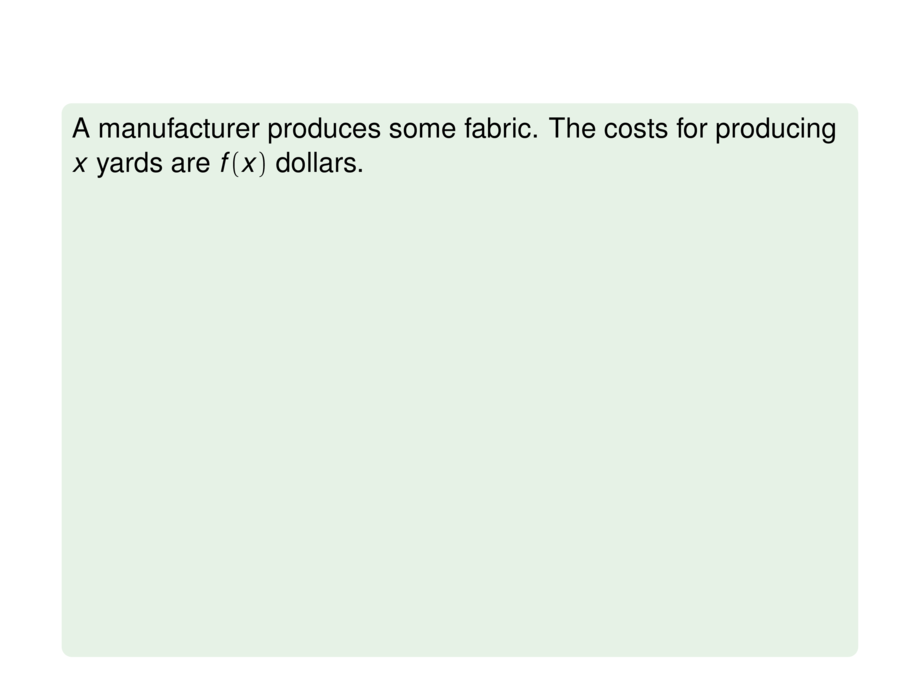



































































































61/74
\begin{frame}
\frametitle{Rates of Change}
\begin{exampleblock}{}
A manufacturer produces some fabric.
The costs for producing $x$ yards are $f(x)$ dollars.
\begin{itemize}
\pause
\item What is the meaning of $f'(x)$ (called \emph{marginal costs})?
\pause
\item What does it mean to say $f'(1000) = 9$?
\pause
\item Which do you think is greater $f'(50)$ or $f'(500)$?
\end{itemize}
\pause
Answers:
\begin{itemize}
\pause
\item $f'(x)$ is the rate of change of production costs in dollars per yard
with respect to the number of yards produced
\pause
\item $f'(1000) = 9$ means that after having produced $1000$ yards,
the costs increase by $9$ dollars for additional yards
\pause
\item Typically $f'(500) < f'(50)$ since usually the cost of production per yard will decrease the more
you produce (due to fixed costs: you have already bought and installed the machines\ldots)
\end{itemize}
\end{exampleblock}
\end{frame}

